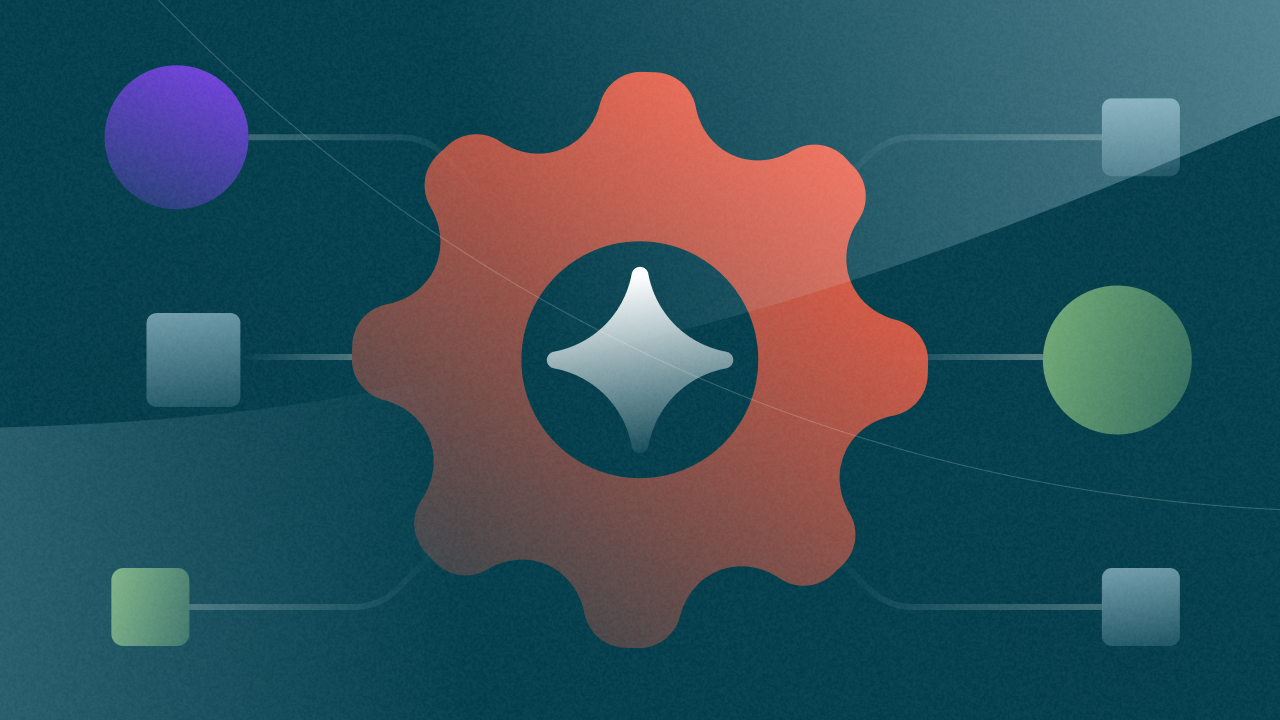
In today’s dynamic corporate world, finance and accounting departments face unprecedented demands. Managing vast data volumes, ensuring regulatory compliance, and delivering swift, accurate insights are critical. Traditional manual processes often fall short. This urgent need drives the widespread adoption of AI tools for finance and accounting, fundamentally transforming financial operations. Embracing AI in finance and accounting moves beyond simple automation, integrating intelligence into every financial workflow. For any organization striving for operational excellence and a decisive competitive edge, exploring these sophisticated AI finance tools is now essential. This article highlights leading brands offering smart AI tools for finance and accounting teams.
Leading Smart AI Tools for Finance and Accounting Teams
The market for AI tools for finance and accounting is rich with innovative solutions, each tailored to specific financial challenges. Here we spotlight prominent brands reshaping financial operations with advanced AI accounting software and other critical AI finance tools. These represent some of the best AI tools for finance, empowering finance professionals and enhancing overall finance automation.
Kognitos: This platform redefines how finance and accounting teams automate complex processes using natural language, eliminating the need for intricate code. It is highly valued for its user-friendliness for non-technical finance professionals, allowing them to describe workflows in plain English. Its rapid deployment cycle allows businesses to implement sophisticated automations quickly, significantly reducing the time to value. It also substantially reduces reliance on specialized coding expertise, democratizing access to powerful AI for business users across various departments. However, it requires an initial setup time for optimal integration within existing financial systems, which can involve initial data mapping. Its full benefits genuinely depend on proper implementation strategies and diligent user adoption across the team.
Glean: Primarily known for enterprise search and knowledge management, Glean offers powerful AI-driven information retrieval crucial for finance teams. Its ability to swiftly find relevant financial data across disparate systems immensely benefits AI tools for a finance professional needing quick access to reports, historical data, or specific transaction details for AI for financial analysis. It accelerates information discovery, significantly reducing time spent searching for scattered financial data, improving overall efficiency. It also enhances team collaboration around financial knowledge, making it easier for teams to share insights. However, its core focus is on data retrieval and knowledge synthesis, meaning its direct financial transaction processing or automation capabilities for core accounting functions are limited.
Cast.ai: This platform specializes in AI-driven cloud cost optimization for Kubernetes environments. While not directly AI accounting software, finance teams overseeing significant cloud infrastructure budgets can benefit immensely from its cost-saving capabilities and detailed financial visibility into cloud spending. It provides substantial cost reductions on cloud spend, achieved through automated resource allocation and optimization, directly impacting the bottom line for cloud-heavy organizations. It also offers granular cost monitoring and reporting, helping finance teams track spending trends. However, its highly specialized focus on cloud infrastructure management means it does not cover broader traditional financial operations or core accounting tasks like reconciliation or invoicing.
Ema: Positioned as an enterprise AI assistant, Ema automates tasks for knowledge workers across various departments, including finance and accounting. For finance teams, this can mean assisting with routine financial queries, generating basic financial summaries from reports, or intelligently routing financial documents for approval processes. It offers strong versatility across various business functions, making it adaptable to different departmental needs beyond just finance, allowing for broad internal applications. Its user-friendly conversational interaction for employees also enhances adoption and simplifies task execution for common inquiries. However, deep, specialized financial integration and complex accounting functions might require additional configuration or custom development to fully meet specific finance-specific requirements.
Orby.ai: This tool focuses on AI agents for automating finance helpdesk operations, significantly improving efficiency in resolving internal and external financial queries. It helps streamline tasks like ticket routing, information gathering for resolutions, and providing quick, automated answers to common finance-related questions. It leads to a significant reduction in manual labor for finance helpdesk teams, resulting in faster ticket resolution and improved accuracy in responses to common financial queries. It also enhances internal customer satisfaction by providing quicker, consistent responses from employees. However, its specialized application means it does not directly perform core accounting functions such as ledger management or financial statement generation.
Paramark: An AI platform dedicated to marketing attribution and spend optimization. Given the close collaboration between finance and marketing on budget allocation and return on investment, Paramark provides crucial financial oversight on marketing ROI for finance professionals. It helps finance teams better allocate marketing budgets by providing data-driven insights into campaign performance and profitability, optimizing spend efficiency. It also offers clearer performance metrics directly linked to financial outcomes, improving budget accountability. However, its specialized focus on marketing analytics means it does not offer broad financial management or core accounting features like general ledger management.
Ascertain: This platform leverages AI for robust risk assessment and compliance management, a highly relevant area for finance and accounting. It helps identify potential financial risks, detect fraudulent activities by analyzing transaction patterns, and ensures stringent adherence to regulatory frameworks. It enhances fraud detection capabilities through advanced pattern recognition, helping to prevent significant financial losses and secure assets. It also improves audit readiness through comprehensive data analysis and strengthens overall compliance postures. However, it critically requires highly accurate and unbiased data input to ensure the AI model’s effectiveness and avoid flawed risk assessments or skewed compliance checks.
Chartahealth: While primarily focused on healthcare data and clinical insights, its underlying AI capabilities for complex data analysis can indirectly support finance teams within healthcare organizations. This might involve optimizing patient billing processes, analyzing cost structures related to clinical outcomes, or improving revenue cycle management specifically in a healthcare context. It offers specialized processing of vast healthcare data for financial applications, providing nuanced insights relevant to healthcare economics. It can improve billing accuracy and optimize financial flows within a healthcare setting, impacting revenue and cost management. However, its inherent focus on a specific industry means it lacks direct features for general corporate finance and accounting functions applicable across all sectors.
Numeric.io: Specifically designed to enhance financial data quality and automate reconciliation, Numeric.io uses AI to streamline these critical accounting tasks. It directly addresses common pain points in the financial close process by automating matching and identifying discrepancies across ledgers. It provides highly accurate data reconciliation, significantly reducing manual effort during closing periods and accelerating the financial close. It also contributes to vastly improved data integrity across financial systems, building greater trust in financial reports. However, its narrower, specialized focus means it does not encompass broader, end-to-end financial management suites that cover a wider range of accounting operations beyond reconciliation and data quality.
Poolside.ai: This platform uses AI for code generation and accelerating software development. While not a direct AI accounting software, finance teams that rely on custom internal tools, complex data integrations, or bespoke reporting systems can benefit from Poolside.ai by speeding up the development of such solutions. It enables significantly faster development cycles for internal financial applications, allowing finance departments to quickly build tools tailored to their unique analytical or reporting needs. It also reduces reliance on specialized coding personnel. However, its indirect application to core financial processes means it does not offer out-of-the-box financial solutions.
Thoughtful.ai: As an intelligent automation platform, Thoughtful.ai aims for hyperautomation, integrating various AI capabilities to automate complex processes across an organization. For finance, this means end-to-end process automation involving cognitive tasks like intelligent document processing, automated invoice handling, or decision-making workflows. It offers comprehensive automation capabilities across various finance workflows, allowing for seamless integration of multiple steps within a complex financial process. It also provides strong flexibility in handling intricate, dynamic processes, adapting to changes in financial procedures. However, there is a potential for a steeper learning curve for its more advanced and integrated features compared to simpler, more niche tools designed for a single function.
The Role and Benefits of AI in Accounting and Finance
The role of AI in accounting extends beyond simple automation. It encompasses intelligent data processing, predictive analytics, and enhanced decision support. AI for finance and accounting helps finance professionals by automating data capture from diverse sources, performing reconciliations with greater accuracy, and flagging anomalies. This significantly improves efficiency and reduces manual workload, demonstrating how AI is used in finance to streamline operations. The benefits of using AI in finance and accounting are evident across the entire financial ecosystem. This includes substantial cost reduction through optimized operations, improved accuracy by minimizing human error, and enhanced analytical capabilities that provide deeper insights into financial performance. AI is used in finance to power various functions like fraud detection, credit scoring, algorithmic trading, and personalized financial advice. This empowers finance teams to transition from data entry specialists to strategic advisors.
AI Technology for Financial Forecasting and Analysis
For financial forecasting, AI plays a crucial role in predicting future financial performance with greater accuracy. The AI technology most commonly used in financial forecasting is machine learning, particularly algorithms designed for time series analysis and regression. These models analyze vast historical financial data, market trends, and external macroeconomic factors to identify complex patterns and predict future values for revenue, expenses, and cash flow. This capability is paramount for AI for financial analysis. Machine learning models learn from past forecast errors and continuously refine their predictions, providing finance professionals with more reliable future outlooks. This dynamic approach is invaluable for strategic planning and resource allocation, ensuring better prepared financial strategies and improving the overall quality of financial analysis.
Implementing AI and Choosing the Best Tools for Finance
How to implement AI in finance & accounting involves several key steps. It typically begins with identifying specific pain points and defining clear objectives for AI integration. This includes assessing data readiness by ensuring clean, accessible, and sufficient data for AI model training. The next stage involves selecting the appropriate AI accounting software or AI finance tools that align with these objectives and can integrate with existing systems. The best AI tool for finance and accounting is not a one-size-fits-all solution but rather the one that best addresses an organization’s specific needs and seamlessly integrates with its infrastructure. Implementation then involves training AI models, integrating them into daily workflows, and providing comprehensive training for finance professionals. This approach ensures effective finance automation.
How much does AI cost for businesses? The cost of AI for businesses can vary significantly depending on the complexity of the solution, the need for customization, and the scale of deployment. It ranges from subscription fees for off-the-shelf AI accounting software to substantial investments for custom-built enterprise solutions. Ongoing costs include data storage, processing power, and specialized talent for maintenance and optimization. Despite the initial investment, the long-term benefits in efficiency, accuracy, and strategic insights often yield a strong return, making it a valuable investment for finance automation.
AI in the Financial Workplace Today and Tomorrow
AI’s presence in the workplace is expanding rapidly, impacting everyday tasks across departments. In finance, AI is being used in the workplace to automate reconciliation, detect fraud, and generate predictive models, significantly changing day-to-day operations for AI tools for a finance professional. Beyond finance, AI assists human resources in talent acquisition and employee engagement, aids marketing in personalization, and supports customer service with intelligent chatbots. The overarching goal of AI in the workplace is not to replace humans, but to augment human capabilities, allowing employees to focus on more strategic and creative endeavors.
How will AI be used in business in the future? We can anticipate AI moving beyond assisting humans to taking on more autonomous, complex, and even creative roles within finance. Future uses will likely include hyper-personalization for customers, where AI systems deliver highly tailored financial products and services. AI will drive more sophisticated predictive and prescriptive analytics, enabling finance teams to not only foresee trends but also to automatically take corrective actions. Autonomous operations will expand, with AI managing entire financial workflows or optimizing portfolio management with minimal human oversight. Furthermore, AI will become a co-creator, working alongside finance professionals in areas like complex financial modeling, strategic problem-solving, and identifying new market opportunities. This signifies a profound shift in how financial teams will operate, focusing more on high-value analytical and advisory tasks.
Embracing the Intelligent Future of Finance
The integration of smart AI tools for finance and accounting teams is no longer a futuristic concept but a strategic imperative for modern businesses. By leveraging AI in finance and accounting, organizations can transcend the limitations of manual processes, achieving unprecedented levels of efficiency, accuracy, and insight. From automating routine tasks with advanced accounting software to providing powerful predictive analytics, the advantages are clear and tangible.
While challenges in implementation exist, the transformative potential of artificial intelligence in business far outweighs these hurdles. Companies that strategically adopt these intelligent tools will be better positioned to optimize operations, reduce costs, enhance decision-making, and ultimately drive sustainable growth in an increasingly competitive global economy. The future of finance is inherently intelligent, driven by these groundbreaking technological advancements.

Discover the Power of Kognitos
Our clients achieved:
- 97%reduction in manual labor cost
- 10xfaster speed to value
- 99%reduction in human error



